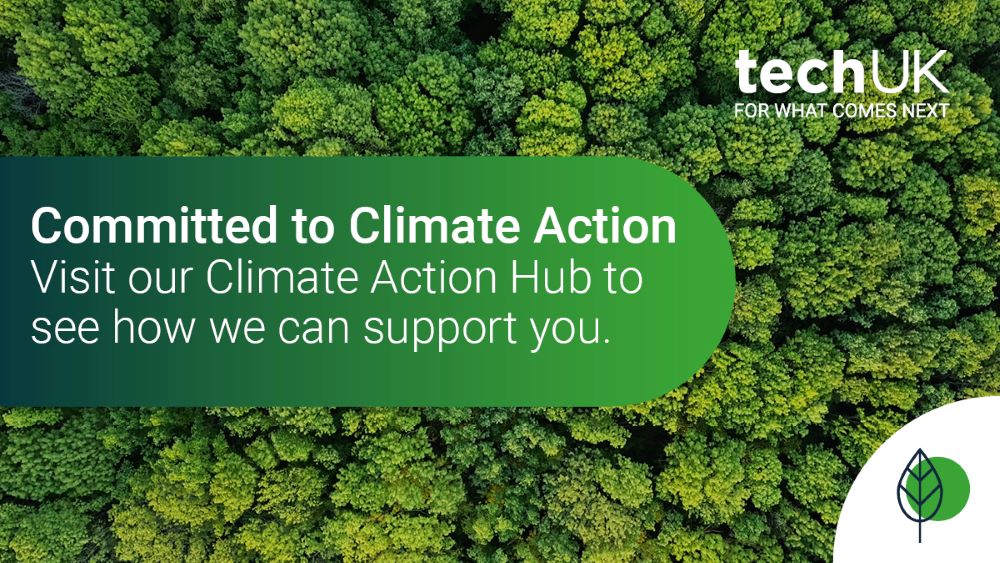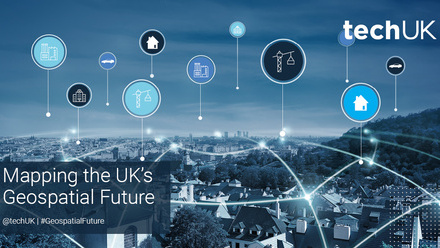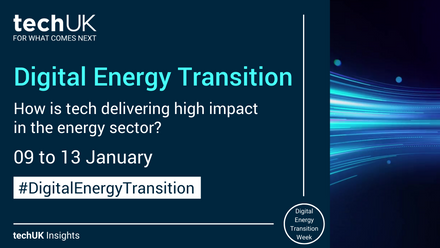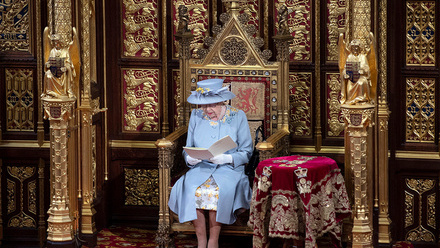Construction and property sector unlocking their net zero potential through digital technology
Digital technology is embedded in our daily lives and in every sector. Playing their part, the construction and property sector are unlocking their net zero potential through the adoption of digital technology. Vital, given the built environment is responsible for around 40% of UK carbon emissions.
From retrofitting existing structures to ensuring that new construction generate lower emissions, the use of digital technologies (including digital twin and smart homes) are accelerating the green transition. Indeed, recent data found that up to 15 per cent of the reduction in the UK's total GHG emission between 2019 and 2030 will be attributed to the use of digital technologies.
Below, techUK outline how the sector are already leading the way.
Prioritise a digital-first culture
To optimise digital technologies, organisations must prioritise a digital-first culture. This includes shifting from a process-driven to a data-driven mindset and investing in digital learning. As well as cultural practices such as cross-functional collaboration and experimentation.
Demonstrating their commitment to a digital-first culture, Costain co-developed the ‘Downloading a Digital Mindset’ (DDM) programme to improve digital leadership across the construction industry. The programme provides a series of free-to-access learning materials and recognises that the industry must adopt a digital mindset that moves beyond just IT. Costain’s programme further tackles the digital and green skills gap across the construction industry.
To date, the programme has seen a 10% improvement in digital leadership capability and 981 individuals from 551 companies have engaged during its initial pilot, over 59% being SMEs. This demonstrates the proven impact of raising productivity, increasing efficiency, and reducing sustainability impacts, and links to Costain’s overall goal to achieve net zero emissions by 2035.
Utilise digital twin technologies
A key digital innovation that enables firms to advance their net zero pathways is the digital twin technology supported by AI capabilities. The technology exhibits a virtual working representation of assets and production plants to foster improved decision making and efficiency.
An example of success, Doosan Heavy Industries and Construction partnered with Microsoft and Bentley Systems to develop a digital twin of its wind farms. Doosan can now optimise, simulate and visualise all aspects of its infrastructure planning and monitoring. In turn, helping to maximise energy production. This is critical given Doosan’s organisational goal to be on the Global 100 Most Sustainable Companies in the World Index by 2025.
Take learnings from others in industry
For success in achieving net zero, industry has recognised the importance of sharing best practice and taking learnings from others. Critical, given the sector involves a broad supply chain.
Showcasing a sharing first approach, Mace’s strategy for carbon reduction, ‘Steps without footprints’ is designed to work with clients and supply chain to innovate and eliminate the industry’s carbon footprint. Mace recognises the importance of collaboration and encourage others in the sector to use and learn about their approach. Sharing has been a central promise to Mace’s carbon reduction strategy. Crucially, digital solutions underpin Mace’s strategy, and they continue to prioritise trialling and employing systems to deliver a low carbon future. This includes investigating AI and IOT platforms to reduce energy use.
To seize this economic opportunity that net zero can bring, techUK continues to call for the UK government to partner with the tech sector to recognise the full potential of digital technology as a solution to the net zero challenge. But it is clear that industry plays a crucial role in the digital-led green transition. By utilising digital technologies, the construction and property sector can continue to make bold and proactive moves in pursuit of net zero opportunities.
---
Join techUK at our Tech and Net Zero Conference, 5 October
The second annual Tech and Net Zero Conference will take place on 5 October. This year’s conference will be focused on operationalising Net Zero for tech firms, as well as looking forward to COP28, specifically the sectors’ role in decarbonising the wider economy.
The agenda includes:
- COP 28 keynote: UK priorities and how they are approaching the talks. Our panel of experts will look at what the COP 28 process means for UK tech.
- What does COP 28 and the global stocktake mean for tech? With COP 28 being a ‘global stocktake’ year, this panel will discuss the risks, operational issues, and opportunities to deliver tech sector led decarbonisation across the economy.
- The tech sector’s own net zero journey. This panel will discuss how they are approaching decarbonisation and the problems they’ve faced. Topics will include transition pathways, standards, frameworks, Scope 3 / Scope 4, offsets, and leadership.
- Policy and regulatory roundtables. Delegates can attend one of three breakout sessions on some of the key regulatory and policy developments impacting tech, including an overview of the latest climate related regulations, greenwashing and green claims, and disclosure requirements for tech (SDRs, CSRD, CS3D).
- Making the UK a clean tech leader in the face of increasing scepticism, the US IRA and EU Green Deal. With increasing climate scepticism ahead of the General Election, this panel will discuss what needs to happen for the UK to become a ‘clean tech leader’. The discussion will include the role of public funding and subsidies, green finance, and creating a market for tech.
- Tech sector decarbonisation roundtables. Delegates can attend one of three breakout sessions that will look at how the tech sector itself can decarbonise, including how to procure renewable electricity, developing green digital skills, and green software development and decarbonised data infrastructure.
- Building a resilient tech ecosystem. The climate crisis is already impacting communities and businesses. This panel will look at how the tech sector can become more resilient, including, how to measure and declare risk, protecting infrastructure and business critical operations, the role of insurance, and contingency planning and future risk planning.
- AI and Climate. AI is set to transform all sectors. This discussion will look at how AI can make an impact on decarbonisation.
techUK - Committed to Climate Action
Visit our Climate Action Hub to learn more or to register for regular updates.
techUK is a crucial source of advice for decision-makers responsible for the delivery of climate and sustainability considerations into their organisation. Our climate and sustainability focused working groups and networking forums are valuable peer-learning opportunities where members can discuss current projects, consider the most pressing topics, and identify common challenges and solutions. For more information on how to get involved in our forums, please visit our Climate Action Hub and click 'Join forums'

Climate, Environment and Sustainability updates
Sign-up to get the latest updates and opportunities from our Climate, Environment and Sustainability programme.










